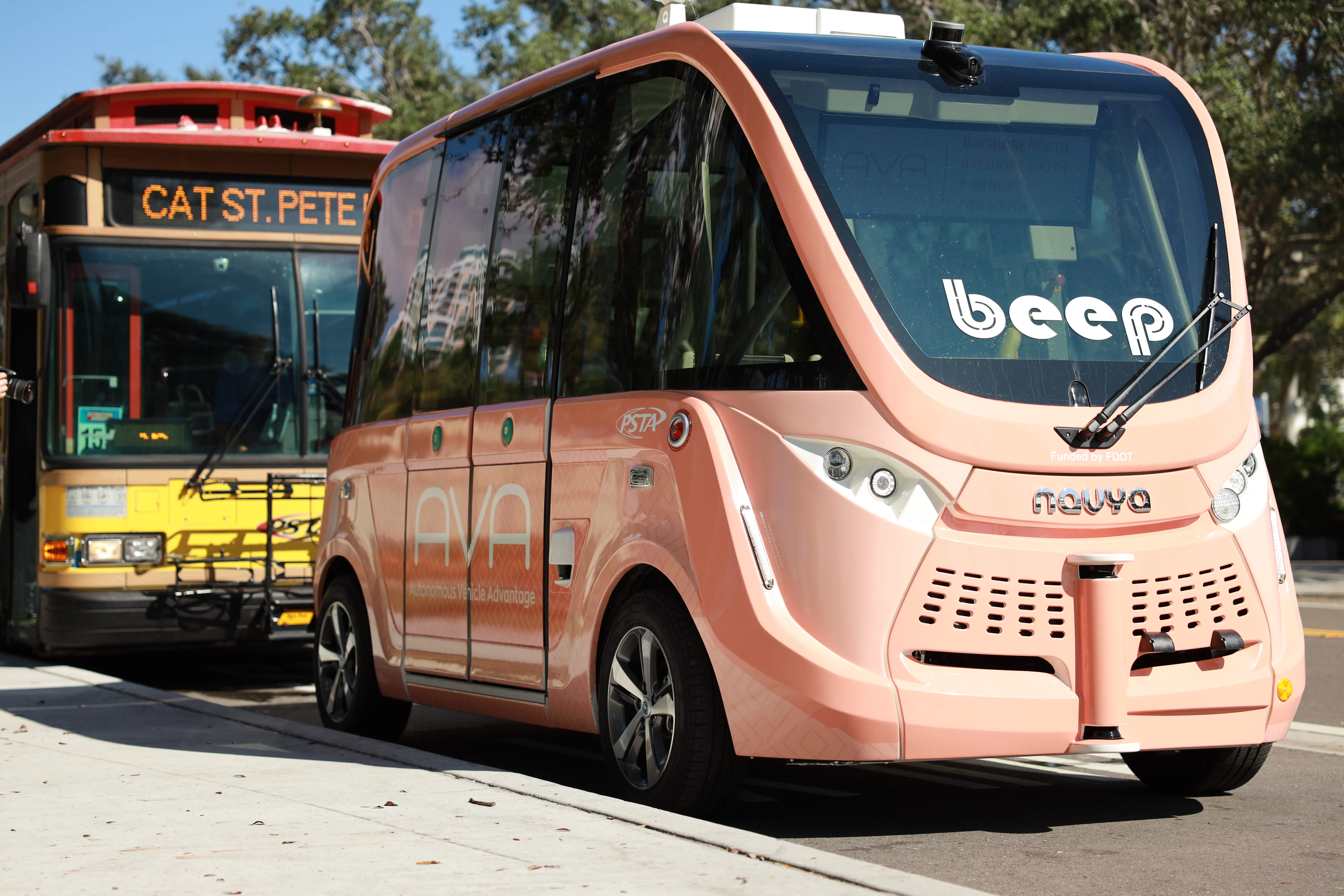The European project CityMobil2 has selected the first round of sites to run demonstrations and showcases of automated road transport systems, which are made up of vehicles operating without a driver in collective mode, under the control of a fleet and infrastructure supervision system.
May 7, 2014
Read time: 3 mins
The European project 7758 CityMobil2 has selected the first round of sites to run demonstrations and showcases of automated road transport systems, which are made up of vehicles operating without a driver in collective mode, under the control of a fleet and infrastructure supervision system.
The French coastal town of La Rochelle will kick off the first large-scale demo in autumn 2014, which will run for around six months. The 2015 World Exhibition in Milan will be the site of the second large-scale demonstration from May until November 2015. The EPFL campus in the West Lausanne region will host the third large-scale demonstration at a date still to be determined.
The Italian town of Oristano in Sardinia will host the first small-scale demonstrator this July and August, followed by a one-month demonstration in the city of Vantaa, Finland, in the summer of 2015.
Two showcases, involving a demonstration of automated transport over a period of several days with the aim of raising local awareness of these systems and wider mobility challenges, will start in September 2014 in Leon, Spain, followed by the CERN campus on the French-Swiss border near Geneva.
More sites will be progressively selected to host a CityMobil2 demonstration in 2016. Between seven and nine demonstrations are expected to be take place during the project. In total, some 12 towns and cities (or equivalent) carried out feasibility studies and were candidates for a demonstration. All recognise the potential of vehicle automation to improve their passenger transport service.
French company7759 Robosoft, a specialist in robotic technologies across different sectors, will supply a fleet of automated vehicles and supporting systems. The vehicles are conventional electric minibuses that Robosoft is converting to make them fully automated. Each vehicle can carry twelve people, or ten with a wheelchair, and the combined capacity of the vehicle fleet should be around sixty. The maximum speed of the vehicle is 45 km/h; however, this will be adjusted to the specific conditions of each demonstration site. A second fleet of vehicles is in the process of being selected.
Several automated transport schemes are in operation around the world, including Group Rapid Transit at Rivium Park Shuttle in the Netherlands, Morgantown in the US, and Personal Rapid Transit at Heathrow airport, UK and in Masdar, UAE. All these systems use exclusive and physically protected infrastructures.
To encourage a wider take-up of automated transport systems within urban areas, CityMobil2 aims at deploying them while progressively removing the physical barriers around them. This follows previous studies showing that transport systems based on automation have significant potential in areas of low to medium demand and/or as a feeder service to the main public transport network. Their costs are comparable to conventional public transport yet they can offer a high-frequency, on demand collective 'taxi-like' service.
The CityMobil2 project is tackling other hurdles to the deployment of automated transport systems, including the legal barriers. Currently, various international conventions and national road and vehicle regulations include references to the driver, and his/her duties and liabilities. CityMobil2 is exploring the prospects for a harmonisation of the legal framework at EU level and developing a validation and certification framework for the deployment of fully automated vehicles in public roads.
The French coastal town of La Rochelle will kick off the first large-scale demo in autumn 2014, which will run for around six months. The 2015 World Exhibition in Milan will be the site of the second large-scale demonstration from May until November 2015. The EPFL campus in the West Lausanne region will host the third large-scale demonstration at a date still to be determined.
The Italian town of Oristano in Sardinia will host the first small-scale demonstrator this July and August, followed by a one-month demonstration in the city of Vantaa, Finland, in the summer of 2015.
Two showcases, involving a demonstration of automated transport over a period of several days with the aim of raising local awareness of these systems and wider mobility challenges, will start in September 2014 in Leon, Spain, followed by the CERN campus on the French-Swiss border near Geneva.
More sites will be progressively selected to host a CityMobil2 demonstration in 2016. Between seven and nine demonstrations are expected to be take place during the project. In total, some 12 towns and cities (or equivalent) carried out feasibility studies and were candidates for a demonstration. All recognise the potential of vehicle automation to improve their passenger transport service.
French company
Several automated transport schemes are in operation around the world, including Group Rapid Transit at Rivium Park Shuttle in the Netherlands, Morgantown in the US, and Personal Rapid Transit at Heathrow airport, UK and in Masdar, UAE. All these systems use exclusive and physically protected infrastructures.
To encourage a wider take-up of automated transport systems within urban areas, CityMobil2 aims at deploying them while progressively removing the physical barriers around them. This follows previous studies showing that transport systems based on automation have significant potential in areas of low to medium demand and/or as a feeder service to the main public transport network. Their costs are comparable to conventional public transport yet they can offer a high-frequency, on demand collective 'taxi-like' service.
The CityMobil2 project is tackling other hurdles to the deployment of automated transport systems, including the legal barriers. Currently, various international conventions and national road and vehicle regulations include references to the driver, and his/her duties and liabilities. CityMobil2 is exploring the prospects for a harmonisation of the legal framework at EU level and developing a validation and certification framework for the deployment of fully automated vehicles in public roads.










